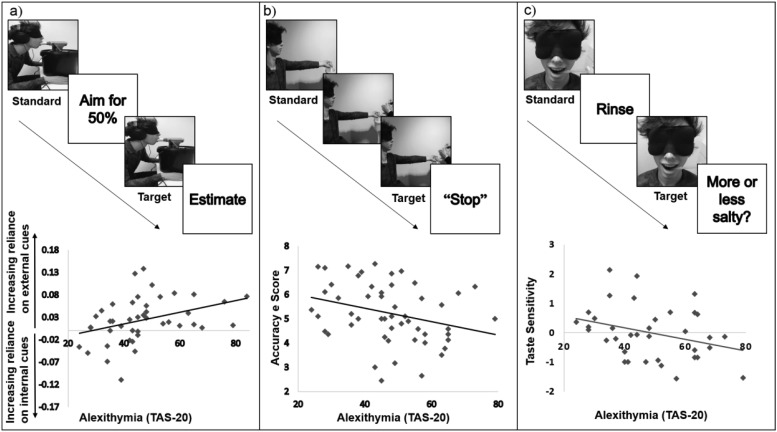Figure 1.
(a) Example trial in the respiratory task; participants were asked to estimate their ability to produce a target exhalation defined with respect to a standard exhalation under conditions manipulating reliance on external and internal cues. The difference in estimation accuracy between internal and external cue conditions is plotted, demonstrating alexithymia was associated with a reliance on external cues. (b) Example trial in the muscular effort task; participants indicated when the target weight matched that of the standard. Alexithymia was associated with reduced accuracy. (c) Example trial in the taste task; participants reported whether the target solution was more or less salty than the standard. Taste sensitivity was modeled by fitting psychometric functions, the plot demonstrates that increasing levels of alexithymia were associated with poorer taste sensitivity, even after controlling for a number of potentially confounding variables (see text for details).

